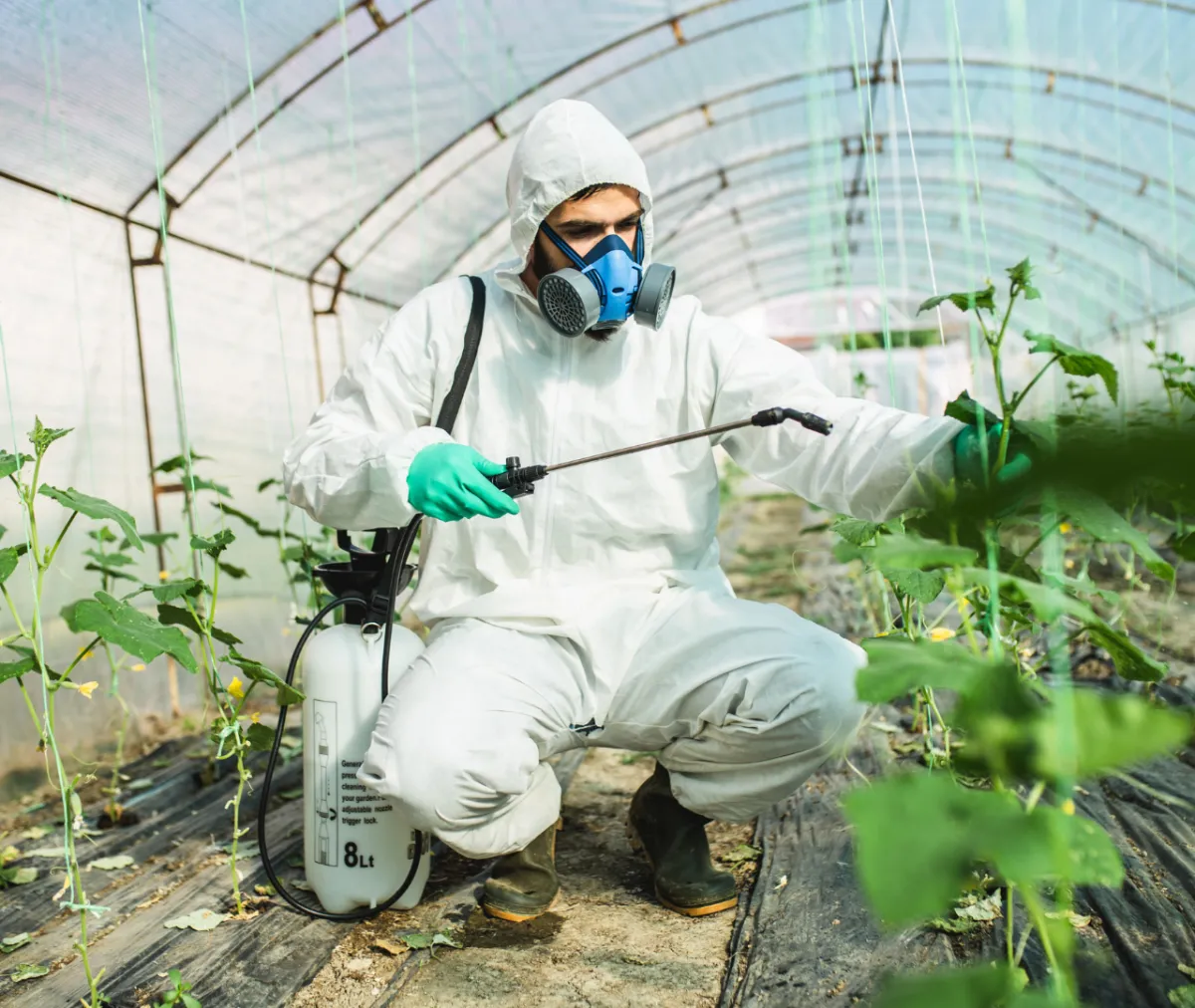
Should You Choose Organic Pest Control—And Does It Actually Work?
Yes, organic pest control can be an effective, safer alternative to traditional chemical treatments—but its success depends on the type of pest, the severity of the infestation, and how consistently treatments are applied. Many homeowners consider organic pest control to reduce exposure to harsh chemicals, protect children and pets, and minimize environmental impact while maintaining a pest-free home.
If you’re considering organic pest control but wondering whether it will truly solve your pest issues, here’s what you need to know.
What Is Organic Pest Control?
Organic pest control uses naturally derived substances—like essential oils, plant-based sprays, and biological agents—to repel, deter, or eliminate pests. Unlike conventional pest control methods that rely on synthetic chemicals, organic pest control typically focuses on prevention as much as treatment and often complements integrated pest management (IPM) strategies.
Common examples include:
Neem oil for garden insects like aphids and mites
Diatomaceous earth for ants, roaches, and other crawling insects
Peppermint, citronella, or eucalyptus oils to repel mosquitoes and spiders
Beneficial nematodes or ladybugs to control soil pests and aphids
Boric acid (low-toxicity) for cockroach and ant control
Organic methods emphasize treating the source of infestations while preserving beneficial insects and maintaining environmental health, making them a preferred option for eco-conscious homeowners.
Does Organic Pest Control Actually Work?
Yes—but with limitations.
Organic pest control can be very effective under the right conditions and is best suited for:
✅ Mild to moderate infestations
✅ Outdoor or garden pests
✅ Homes with children, pets, or chemical sensitivities
✅ Preventative treatments within an IPM framework
However, it may be less effective for:
🚫 Severe infestations (e.g., large bed bug or rodent populations)
🚫 Situations requiring immediate elimination
🚫 Long-term residual control (as many organic products break down faster)
Organic pest control often requires more frequent applications, consistent monitoring, and a combined approach to achieve reliable results.
Pros and Cons of Organic Pest Control
Pros:
✅ Safer for children, pets, and sensitive individuals
✅ Reduces chemical residue in the home and garden
✅ Less likely to trigger allergies or respiratory issues
✅ Environmentally friendly, preserving pollinators and beneficial insects
✅ Supports sustainable pest management practices
Cons:
🚫 Slower results compared to synthetic pesticides
🚫 Requires more frequent applications and monitoring
🚫 May not be effective against deeply rooted or severe infestations
🚫 Shorter residual protection, requiring ongoing attention
How to Make Organic Pest Control More Effective
To maximize the effectiveness of organic pest control, follow these key steps:
1️⃣ Identify the pest accurately: Treatment only works if matched to the correct pest species and lifecycle. Misidentifying the pest can lead to wasted effort and ineffective treatment.
2️⃣ Act early: Organic methods are most effective when infestations are small or just beginning. Early intervention helps avoid pest population growth that can overwhelm organic measures.
3️⃣ Use an integrated approach: Combine organic treatments with good sanitation practices, sealing entry points, eliminating moisture, and removing food sources to reduce attractants.
4️⃣ Work with professionals: Many eco-conscious pest control companies offer organic treatment plans, using professional-grade organic products and customized strategies to provide the best balance of safety and effectiveness.
Should You Choose Organic Pest Control?
Choose organic pest control if:
✅ You prioritize environmental safety and sustainability.
✅ You have young children, pets, or health conditions that make chemical exposure risky.
✅ You’re dealing with minor pest issues and want a preventive, eco-friendly approach.
✅ You value lower toxicity, even if it means slower results and more frequent monitoring.
Consider conventional treatments if:
🚫 You’re facing a severe or widespread infestation (e.g., termites, bed bugs, or rats).
🚫 You require fast and long-lasting results to protect your home.
🚫 Organic methods have not worked effectively in previous attempts.
In many cases, a hybrid approach—combining organic practices with targeted, low-toxicity treatments—can offer an effective middle ground, allowing you to manage pests sustainably while ensuring your home remains safe and pest-free.
Final Thoughts
Organic pest control does work—but it’s not a one-size-fits-all solution. For homeowners seeking safer, greener pest control options, organic treatments can be a smart choice when used proactively and in combination with preventative measures.
However, organic methods require patience, consistency, and a holistic approach that addresses pest entry points, attractants, and environmental factors alongside treatment.
Ultimately, the best pest control plan is one that balances safety, effectiveness, and sustainability—whether that means fully organic, conventional, or a hybrid method tailored to your home’s unique needs.
If you’re unsure whether organic pest control is the right choice for your situation, consider consulting a licensed pest control professional who offers eco-friendly services. They can evaluate your pest problem, develop a customized plan, and help you achieve a pest-free home while aligning with your values and safety priorities.